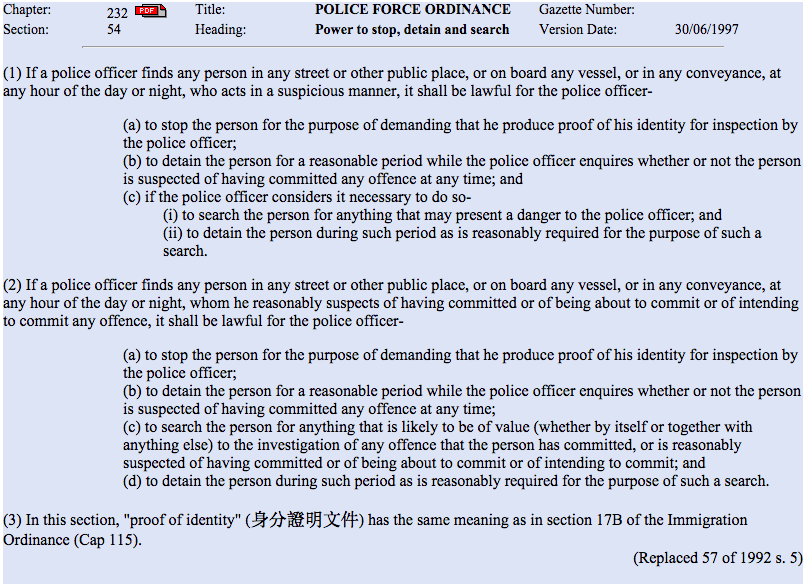The increasing suppression of freedom of speech, the blocking of the press by the police to prevent their actions being recorded, scrutinised and exposed when illegal is fast turning Hong Kong into a police state.
There has been nothing public from the ineffectual buffoons in Legco to instruct the police to act in this manner. So one can only assume the harassment is on the instructions of Cy Leung and his Beijing puppet masters.
With this random stop, search, arrest, assault – it’s important that you know your rights and what the police are legally allowed to do. Not that, as we have seen, the police obey the law.
It’s called the Hong Kong Civil Liberties Union Protestors Rights Handbook – but it’s worth reading by anyone as it offers a good simple explanation of your basic legal rights when dealing with the police. Download a pdf copy here
The police have extensive powers, the two most relevant sections of the Police Force Ordinance are Chapter 232, section 54 entitled ‘The Power to stop, detain and search’ and Chapter 232 section 50 entitled ‘Arrest, detention and bail of suspected persons and seizure of suspected property’.
Several tweets have quoted police officers in Mong Kok as saying that if they see the same id card in their random stop and search harassments – then that person will be arrested.
The attraction of Mong Kok is wandering the streets full of wonderful street food and restaurants while trying to decide what’s to eat or buy… if that’s now been deemed illegal then it looks like a slow death for Mong Kok shops by police intimidation of their customers. I love the red bean pancakes and other pastries at the Kee Tsui Cake Shop 奇趣餅家, 135 Fa Yuen Street, but going there to buy them each week I now face the prospect of being arrested.
Or perhaps this is part of the bigger plan by the government, property tycoons and the Urban Renewal Authority to destroy the Mong Kok we love and replace it with more generic shopping malls targeting mainland tourist shoppers.

